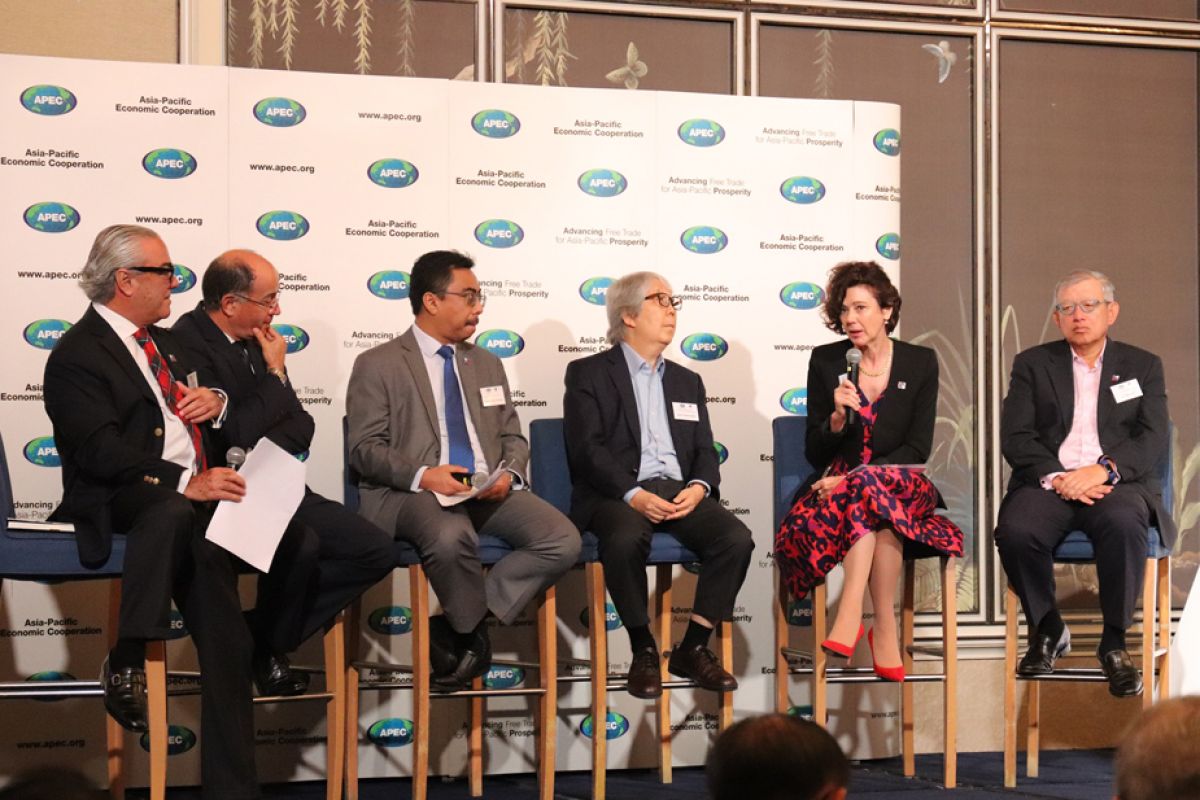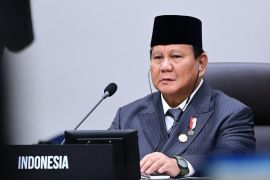"Going forward, the world needs an organization quite alike APEC. Not a negotiating organization, but a consensus-building organization that works on new areas," Ho Meng Kit, CEO of the Singapore Business Federation, stated at an APEC policy forum attended by leading figures of the diplomatic corps, the business community, and academia.
"The world needs APEC more than ever. This is one point that we want to make to APEC’s leaders: let’s preserve the institutional value of APEC," Ho emphasized.
The forum, hosted by the APEC Secretariat and APEC Chile 2019, highlighted both APEC’s successes and challenges that lie ahead.
Since the establishment of APEC in 1989, economic growth fueled by trade – which grew at an average rate of 7.1 percent per year – has helped a billion people break free from the shackles of poverty and enter the middle-class bracket.
Today, the growth of merchandise trade – of exports and imports, in both volume and value – is moderating. In 2018, APEC exports had plunged to below half of the global total, from a little above 50 percent in the previous years, according to the most recent APEC Regional Trends and Analysis report. Concurrently, trade restrictive measures are increasing.
Related news: APEC builds higher trust quotient with data protection system
Hairil Yahri Yaacob, deputy secretary-general of the Ministry of International Trade and Industry of Malaysia, the next year’s APEC host, noted that working towards more equitable sharing of prosperity can help boost public confidence in free and open trade.
"It is very important that all benefits are not just reaped by big businesses or the big players but must also trickle down to the person on the street," Yaacob emphasized.
Chile, the host economy of APEC for 2019, typifies how trade and APEC membership can boost growth, Chair of APEC Senior Officials this year Mathias Francke stated.
Since joining APEC 25 years ago, Chile’s exports to the Asia-Pacific have grown 800 percent and generated a million jobs. With 16 free trade agreements with Asia-Pacific economies in place, almost two-thirds of Chile’s trade is with APEC.
Chile has set several goals for its host year, including a roadmap to address marine debris as well as for strengthening women’s role in the economy. Top of the list on Chile’s agenda is maintaining "a strong commitment to free trade, to the multilateral system, to the WTO, to the reform of the WTO, and to the FTAAP (a Free Trade Area for the Asia Pacific)," Francke noted.
The priorities that Chile has set this year, comprising promoting a digital society and sustainable growth, illustrate how APEC tackles challenges beyond trade.
"We face growing income inequality, climate change, and disruptive technology. APEC’s voluntary approach to cooperation can help members to navigate these cross-border complexities and find solutions," APEC Secretariat Executive Director Rebecca Sta Maria remarked.
Other speakers at the forum included Singapore’s renowned Ambassador-at-large Tommy Koh, New Zealand’s High Commissioner to Singapore Joanne Tyndall, Chile’s Ambassador to Singapore James Sinclair, Director of the APEC Policy Support Unit Denis Hew, and President of the Latin American Chamber of Commerce in Singapore Pablo Lizana.
Related news: Collaboration to plug the digital skills gap by 2025: APEC
Reporter: Yuni Arisandy Sinaga
Editor: Rahmad Nasution
Copyright © ANTARA 2019











